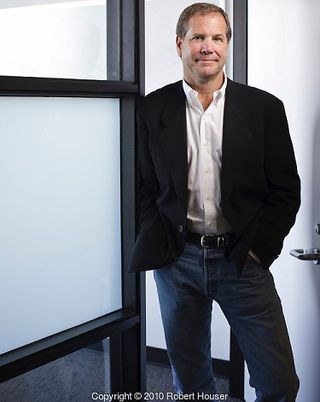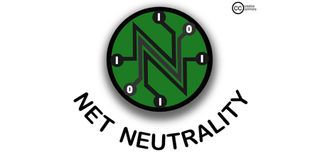On December 14, 2017, the US Federal Communications Commission (FCC) voted to repeal the “Open Internet Order.” This repeal effectively ended the net neutrality provisions that classified consumer broadband service as a public utility under the Title II Order of the Communications Act of 1934. In accordance with the Open Internet Order, the FCC had adopted “no-blocking, no-throttling, and no-paid-prioritization” rules for internet content. Now that net neutrality has been overturned, the internet is no longer considered a common carrier or a public utility. Additionally, there is no longer a legal basis to prevent internet service providers (ISPs) from prioritizing or blocking content. Will the net neutrality repeal lay the groundwork for more internet innovation, galvanizing technology startups, as argued by FCC Chariman Ajit Pai? Or will ISPs such as Comcast and Verizon use these new freedoms to create tiered delivery systems, creating fast tracks for higher prices or slow lanes for sites deemed low priorities? Opinions vary depending on who you ask.
The professional audiovisual industry has a vested interest in cyber developments, so AV Technology asked the CEOs of leading AV companies to weigh in on net neutrality. Here are a few of their perspectives.

Ilya Khayn, CEO/co-founder, Atlona (atlona.com)EQUAL ACCESS IS A NECESSITY
“Net neutrality is a necessary component to consume content via internet, and an absolute necessity and expectations in today’s world. It allows business of any size, in the pro AV market and elsewhere, to have a fair opportunity to reach an audience.”
—Ilya Khayn, CEO/co-founder, Atlona (atlona.com)LARGER COMPANIES BENEFIT

Paul Harris, CEO, Aurora Multimedia Corp "The web was originally designed to share information between scientists across the world so they could be equals in the knowledge they possessed or acquired. When you commercialize the delivery of this powerful platform and in turn control content, it allows providers to influence the users and businesses alike. This not only affects the Pro AV market but all businesses especially the smaller ones that may not be able to afford the bandwidth or conditions the providers set. This could allow larger corporations to dominate the information being delivered with their deep pockets and squash potential competition. This goes against the intent of fair and universal information to be shared across the globe and allow the individuals to make educated choices based on all the information available."
—Paul Harris, CEO, Aurora Multimedia Corp (auroramultimedia.com)

Frank Pellkofer, CEO/co-founder, Utelogy (utelogy.com) THE AV INDUSTRY MIGHT GET THROTTLED
"Utelogy had written to our elected officials imploring them to defend net neutrality. The internet is a place of freedom and equality. Small companies like Utelogy Corporation and others in the AV industry directly compete with companies like Verizon, AT&T, and Comcast who offer AV, VTC, Cloud-based Control, and more. They can now throttle us individually and collectively directly affecting our quality of services and delivery, the ability for prospective customers to get information about our offerings and more."
—Frank Pellkofer, CEO/co-founder, Utelogy (utelogy.com)IT’S TOO EARLY TO WORRY
"It's too early to know the impact, if any. I see no need to blow on the 'sky is falling' flames.”
—Ed Qualls, founder/president, Just Add Power (justaddpower.com)
WE SHOULD ALL BE WORRIED
"I actually am very worried. And I think we all should be worried about this because the types of material that students, teachers are looking for don’t help the bottom line of internet providers.”
—Richard Culatta, CEO, ISTE (International Society for Technology in Education)

Peter Jackson, CEO, Bluescape (bluescape.com)
TOO FEW WILL GAIN
"There is no question that the massive changes in how we communicate, consume content and interact with each other do require some policy changes to stay current, just not this one. Internet access can’t be a political football that is punted around by every new administration. Despite fiery rhetoric on all sides, too few will ultimately gain from the repeal of this legislation and as the financial, economic and employment impacts are realized, people will rise up. It’s time to update legislation to meet the realities of the 21st century before it’s too late."
—Peter Jackson, CEO, Bluescape (bluescape.com)NET NEUTRALITY LEVELED THE FIELD

Kimberly Lancaster, president/founder, Caster Communications "Given how intertwined marketing has become on the web, I believe the repeal of net neutrality will fundamentally change the economics of advertising and digital marketing. While it currently costs something to create, and distribute marketing, businesses might also have to pay to ensure an audience has access to it. Net neutrality leveled the field, the small and midsize companies like NewBay Media and AV Nation, that wanted to deliver their content, applications, and services via the Cloud could deliver rich media at the same speeds as tech giants."
—Kimberly Lancaster, president/founder, Caster Communications (castercomm.com)

Paul Shu, president, Arista CorporationISPs HAVE TOO MUCH POWER
“While the FCC’s recent decision on net neutrality claims to remove government regulations, it appears to give more power of internet regulation to service providers. Users of the internet inject life and vitality into the cyberweb, not the service providers. Let’s not lose site of the fact that internet users (from individuals to company representatives) are the ones who publish and post to the various websites the general public visits for information, entertainment, etc.—not the service providers.”
—Paul Shu, president, Arista Corporation (goarista.com)

Mary McDowell, CEO, Polycom
INFORMATION WITHOUT BARRIERS
“The power of technology is in how it can connect people, human to human. Anything that restricts how people connect with each other and share information is a huge step backward for society. Net neutrality allows the free and open internet access people need to communicate and collaborate on equal footing. We encourage Congress to pass a fair net neutrality law that preserves every person and business’ right to information without barriers.”
—Mary McDowell, CEO, Polycom (polycom.com)


